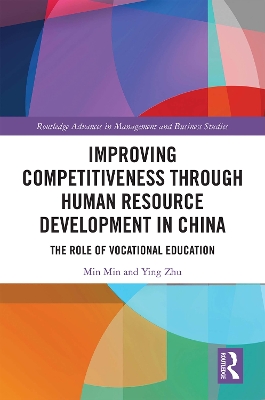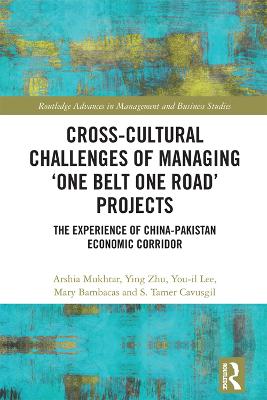Routledge Advances in Management and Business Studies
2 total works
Improving Competitiveness through Human Resource Development in China
by Min Min and Ying Zhu
This book looks at the development of vocational education and training in China and how it is crucial to human resource development and improving competitiveness. It briefly outlines the contextual issues related to vocational education and training in China, the importance of vocational education and how China has been using vocational training to reduce the unemployment rate and raise its overall human capital.
Cross-Cultural Challenges of Managing 'One Belt One Road' Projects
by Arshia Mukhtar, Ying Zhu, You-Il Lee, Mary Bambacas, and S.Tamer Cavusgil
The China Pakistan Economic Corridor (CPEC) is a flagship program of China's 'One Belt One Road' initiative, created to boost economic cooperation between China and Pakistan with significant political and economic implications in the region. This book looks at critical issues when developing capabilities of cross-cultural management, adaptation and adjustment through cross-cultural understanding and network building from the CPEC case study.
The book highlights the importance of acculturation experience, cross-cultural networking, networking behaviour (guanxi vs. hawala), and factors influencing cross-cultural adjustment, which would enhance the overall performance of 'One Belt One Road' projects in general. It looks at how the Chinese and Pakistani employees' national cultures affect their behaviour while working on the CPEC projects. The book offers insights into what cross-cultural adjustments are effective in creating improved individual and organizational performance.
In an increasingly globalized world in which the practice of working with people from multiple cultural background is more of a norm, this book will be a useful reference for those who are interested to achieve success in multi-cultural settings.

